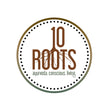What is Addiction
Addiction is a condition that arises due to frequent use of alcohol and drugs. It is a pathological condition that can lead to failure in school, work and life overall.
How People Get Addicted to Drugs or Alcohol
People get addicted to drugs or alcohol to forget physical or emotional suffering, depression or an unhappy family or personal life.
Ayurveda’s Concept of Addiction
Ayurveda considers addiction as an “intoxication” condition due to the frequent use of alcohol or other substances. Alcohol and drugs are the complete opposite of Ojas, the life force in the body. Ojas is required for good health. Alcohol and drugs greatly diminishes Ojas.
Four Stages of Addiction
- Acute intoxication
- Withdrawal symptoms
- Drug dependence
- Drug abuse
Ayurvedic therapies are used about after 8 to 12 weeks of sobriety. It is very important to consult with your Ayurvedic specialist at every step of the therapies and I have developed an Ayurvedic Wellness Program for addiction.
The Three Doshas and Addiction
Ayurvedic principles are based on Vata (air, ether), Pitta (fire) and Kapha (water, earth). Ayurvedic therapies to treat addiction focus on balancing the three Doshas and pacifying the aggravated Doshas in the body, as well as detoxifying mentally, emotionally and physically.
Five Steps to Treating Addiction and Assisting Recovery with Ayurveda
Step 1
An analysis of the imbalance in the Doshas by the practitioner is required before starting any Ayurvedic therapies.
Signs of Dosha Aggregation
Vata Symptoms
- Headaches
- Body aches
- Insomnia
- Difficulty breathing
- Hallucinations
- Anxiety
- Irrational anger
- Constipation
- Shaking/tremors
- Moodiness and mood swings
- Unstable thinking
Pitta Symptoms
- Burning sensations in the body
- Reddish eyes
- Acidity in the stomach
- Sweating without exercise
- Fevers
- Diarrhea
- Vertigo
- Aggression
Kapha Symptoms
- Excessive sleep
- Heaviness in the body
- Vomiting
- Lethargy

Step 2
Follow a stable, healthy lifestyle, including diet and exercise, as recommended by your Ayurvedic practitioner and physician.
Step 3
Depending on your unique situation, Panchakarma may be right for you. Panchakarma is an ancient healing method that can be intense and should be watched closely by your practitioner and physician. It is also highly effective in returning to good health!
Step 4
After Panchakarma, a specific diet and Ayurvedic herbs are used after cleansing or detoxification.
Step 5
Integrating Yoga, breathing exercises, individual and guided meditation and therapy are important in addressing the emotional and mental aspects of addiction.
Common Ayurvedic Remedies for Addiction and Recovery Healing
- Lemon juice mixed with warm water and grape juice can drank once or twice a day.
- Purified water with crushed ginger, cardamom and honey can be drank several times a day.
- Raisins soaked in water can be used as a healthy snack three to four times a day with fresh, homemade, lightly spiced food to maintain and rebuild the vital force of the body according to Ayurveda.
![]()

Jaya is an Ayurveda practitioner. For the past 20 years she has led clients to health and healing by sharing the transformative power of Ayurveda in her seminars and workshops.
In addition to being the founder and CEO of Active Ayurveda and Yoga, LLC and The Institute of Ayurveda and Lifestyle Management, she is a writer of Ayurveda related articles in multiple newspapers and magazines in United States. As a healing practitioner, Dr. Daptardar concentrates on prevention and wellness, specializes in women’s health, nutrition, weight and lifestyle management, and the treatment of such maladies as arthritis, asthma, allergies, acne, digestion issues, chronic pain, mental health, stress related illness and Ayurvedic therapies like Shirodhara, Nasya and much more. She practices in Weston CT and at Pryority Wellness, 45 Grove Street New Canaan, CT
Dr. (Vaidya) Jaya Daptardar BAMS, MHA
jmdaptardar@hotmail.com

